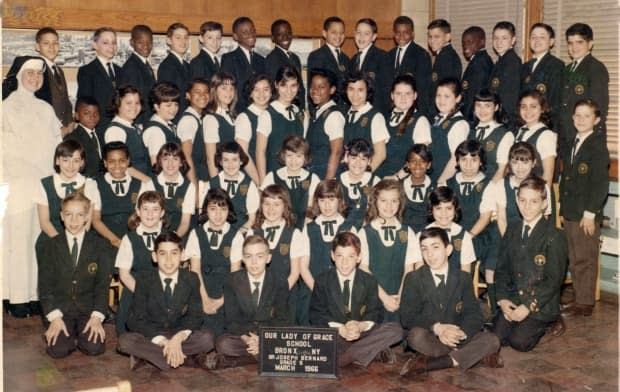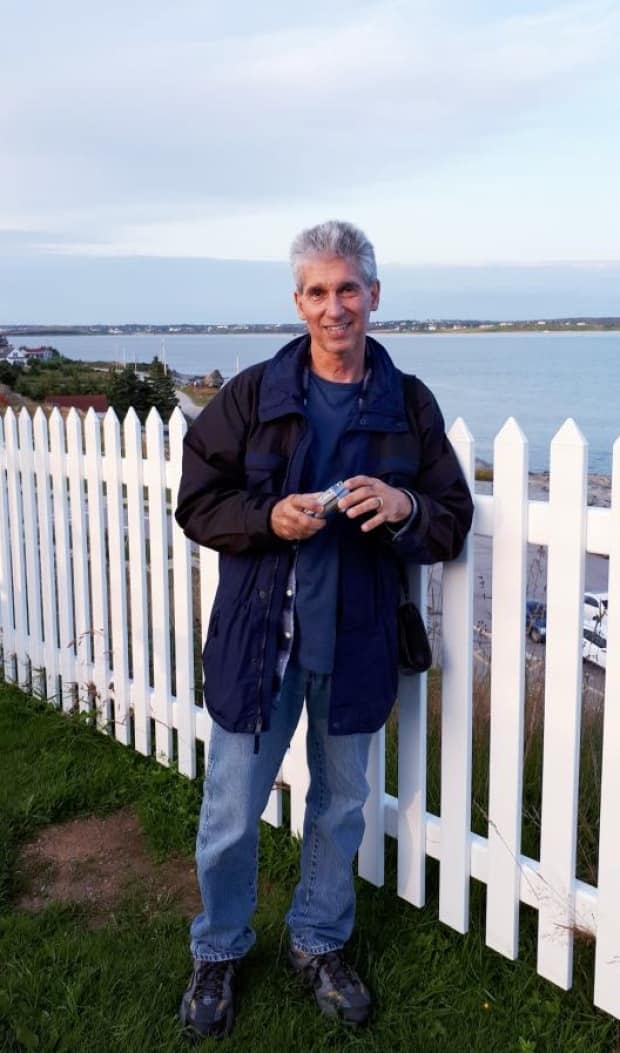What a life: Charles Gulotta

Angelo DeCesare remembers the day he lost his childhood best friend like it was yesterday.
He had just finished Grade 5 at Our Lady of Grace School in the Bronx, and he walked the six blocks to his buddy Charles Gulotta's house.
"I went to call for him and his mother said they were moving away," he said over the phone from New York. "They were only going to be there a little while longer. And he wasn't home. And I felt really bad, because I knew that I was losing a kindred spirit."
I spent an evening on the phone with the family and friends of Charles Gulotta, trying to get to know him better. He died in October of 2020 of a brain tumour. His family in P.E.I. wasn't able to hold a funeral for him because of COVID-19 restrictions.
It's because of people like Charles we're running this series. We want to make up for some lost time and give proper due to some of the great Islanders we've lost.

The first time Angelo ever saw Charles he was playing baseball in the street. This was the Bronx in the 1950s, so you are absolutely right to imagine it like you're watching a sepia-toned movie.
"And he was a very good athlete as a boy," remembered Angelo. "I was kind of envious of him. But he was so nice and so modest about his skills that it didn't take long for me to see he was not somebody to be envious of. All I could do, you know, was just enjoy his friendship."
'They saw it, they loved it'
The two had a lot in common. They loved comic books. They collected baseball cards. They played sports in the street. Baseball, sure, but stickball and handball, too.
"Many years went by, I didn't hear from him," he said. "We had a class reunion and I went looking for him. I couldn't find him. I looked all over America. All over the directories. I had no idea he wasn't here anymore. He was in Canada."
I was so happy to hear from him. We started talking and it was almost as if no time had gone by. — Angelo DeCesare
Charles's family moved north of New York City to a safer neighbourhood.
He grew up. He got married.
He and his wife had a daughter, Allison. During childbirth, his wife had a sudden and shocking stroke. She died a few years later.
For a while, Charles raised Allison by himself. He eventually married again to a woman named Maria. She had a daughter just a little older than Allison. Charles and Maria would eventually have a son together.

Allison says it was a family vacation in the 90s that eventually brought them to P.E.I.
"And they fell in love with it," she said from her home in Charlottetown. "We were driving and they saw a house for sale. And they decided they wanted a change of lifestyle. They wanted to raise us in a place that was quiet and safe. They decided to buy this house. They saw it, they loved it, and decided to move us here."
'There will never be anyone like him'
Theresa MacMillan's house was just up the street from their new place in Cornwall.
Both families had kids about the same age, so they found themselves waiting for the bus together. A funny thing happened at that bus stop.

"It just turned into a morning event," said Theresa. "At first we would chat at the end of my driveway. After a while, we started to freeze to death because it was so cold in the wintertime. And then we started going to each other's houses to have coffee, or some toast or bagels or something. And we'd have a meal together in the mornings. And we just became really good friends. He was easy to be around. There will never be anyone like him."
"It's sort of one of those things of this age," I said. "It's very hard to make friends as an adult, isn't it? And to have it organically happen like that. How long did it take for you to go from casual bus friends to 'why don't you come have a bagel?'"
"Not that long," she said. "I think of the school year. When do the kids start, September? So by the winter, when it was getting cold. So a few months."
"I feel like, knowing my dad, that's not surprising," said Allison "He would make connections with people and they would not be superficial. He hated talking about the weather, right? All those sort of basic, superficial conversations he just had no time for. He didn't have a huge circle of friends, but the friends he did have were close and real. And they were lifelong friends."
Speaking of lifelong friends.
Angelo DeCesare had just about given up looking for his childhood friend, when one day, the phone rang.
'He moved to make a life'
"He contacted me!" he said. "I think 30 years had gone by. I was so happy to hear from him. We started talking and it was almost as if no time had gone by. We started exchanging emails. And talking on the phone. And our friendship just picked up."
Charles visited Angelo in New York. They vacationed together. They talked about comic books and writing. And, of course, baseball.
Allison said baseball was her dad's weakness. But it was the best kind of weakness.
"He worked from home as a writer. So you knew, if it was during the day and you were home we needed to let dad work. But if you went in and asked him to go outside and have a catch? You'd be guaranteed he'd be outside as quick as he could. All three of us knew that. And we used that, because it was a really great way to get his undivided attention."
That undivided attention was part of what made Charles such a great friend. Theresa said it was his focus on the people he loved that defined him.
"You know how some people move for a job?" she asked. "For work? Well he moved to make a life. Lots of times we go where the work is, and then we make our life around the job. He did just the opposite."
"That's wonderful," I said.
"Right," she said. "You really can't say more than that."


